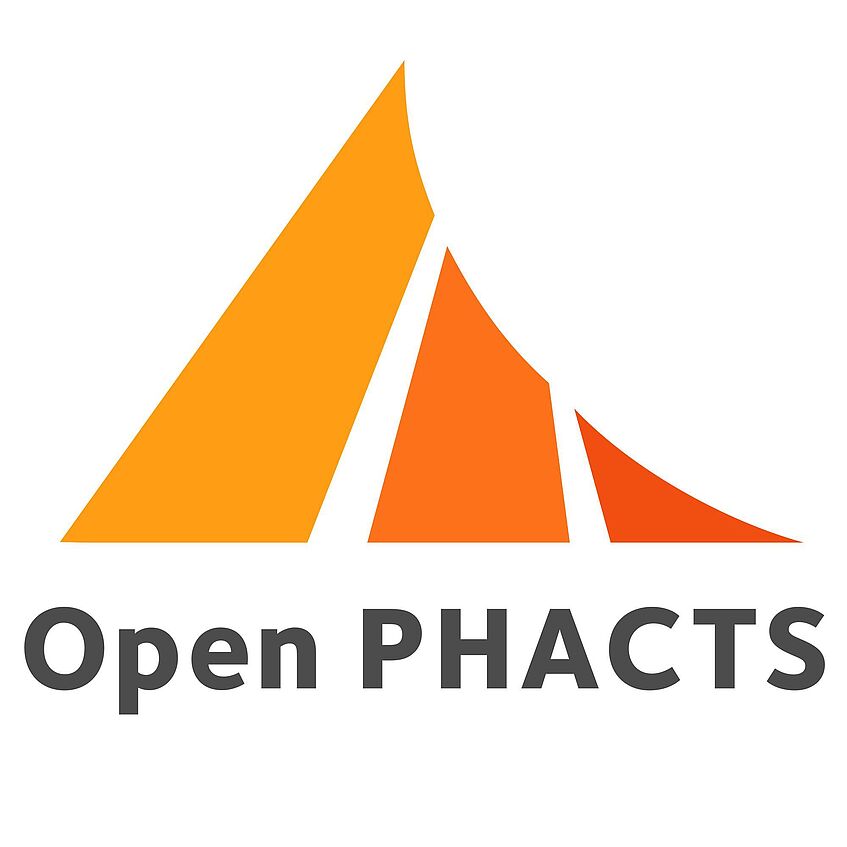Open PHACTS
The Open Pharmacological Concepts Triple Store
The early drug-discovery process requires the assembly, overlay and comparison of data from many sources, as well as the development of common standards and semantics. Until now, these data sources were very fragmented and it took researchers significant amounts of time and money to answer basic research questions. IMI’s Open PHACTS project addressed this gap by creating a platform that connects about a dozen different drug discovery databases, allowing researchers to rapidly find and access relevant data in different domains. Thanks to the Open PHACTS Foundation, which was set up during the project, the platform is free, open access and sustainable, and will continue to run beyond the lifetime of the project.
Drug discovery is data-hungry and all major pharmaceutical companies maintain extensive in-house instances of public data. Analysis and hypothesis generation for drug-discovery projects requires the assembly, overlay and comparison of data from many sources as well as the development of shared identifiers and common semantics. The alignment and integration of internal and public data and information sources requires a significant effort, and the process is repeated across companies, institutes and academic laboratories. This represents a significant waste and increases drug discovery costs. The Open PHACTS project set out to tackle that challenge.
By bringing together leading experts in the fields of data mining, small molecule data storage and manipulation, target bioinformatics, information handling, chemical biology and more, the project developed the Open PHACTS Discovery Platform. The platform links up about a dozen diverse and complementary drug discovery databases, allowing researchers to rapidly find and access relevant data in different domains, such as compounds, targets, diseases and tissues. It is open to all users and is freely available in the public domain. The platform significantly reduces the time needed to answer complex questions in drug discovery: what used to take days or months of research, can now be accessed with a few clicks.
Leading the way in data standardisation
In order to make all this data more searchable, the project also developed standards and common identifiers. Moreover, the project was a thought incubator for the FAIR (findable, accessible, interoperable, reproducible) data principles, which are now having a wider impact on the scientific community.
A spin off that will reduce the use of animals in research
The project also resulted in the creation of a spin off. Called Phenaris, it will develop ToxPHACTS, a software that will combine the eTOX project outputs with the Open PHACTS discovery platform.
The ToxPHACTS platform will allow toxicologists to do the very early assessment of the risk of a certain compound, even before they do the first animal experiments. The new platform will save researches money and time, and reduce the use of animals in research.
For the benefit of industry, academia and SMEs
Both industry and academia benefitted from the collaboration and the intellectual network which was created during this project.
The academic community also greatly benefited from getting to know how industry works, especially when it comes to data issues. Several PhD students who worked in the project found jobs in industry.
The SMEs within the project benefitted from close contacts with potential new customers in industry and from learning more about their needs.
What’s next
Even though the project has ended, the Open PHACTS Discovery Platform lives on thanks to the Open PHACTS Foundation, which was set up to build on the work begun in the project. The foundation was set up early in the project, in 2012, and the formal handover from project to foundation took place at the project’s closing meeting in Vienna in 2016. Meanwhile the foundation has already established itself as a leader in linking data, and is a partner in several Horizon 2020 projects.
Read the interview with project coordinators


